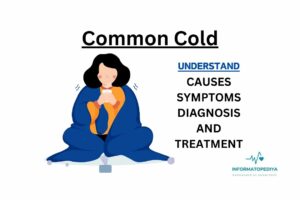
Table of Contents
Understanding Vitamin Deficiency: Symptoms and Causes
Introduction:
Vitamins are crucial micronutrients necessary for optimal bodily functions. Our bodies rely on these essential compounds, which are primarily obtained from the foods we consume. However, insufficient intake of vitamins can lead to various health issues, ranging from respiratory problems to memory loss. In this article, we explore the symptoms and causes of vitamin deficiency, shedding light on the potential consequences of inadequate vitamin levels in the body.
Symptoms of vitamin deficiency:
Vitamin deficiency occurs when the body lacks an adequate supply of specific vitamins required for proper organ functioning. The following symptoms are commonly associated with various vitamin deficiencies:
1. Shortness of breath:
Insufficient vitamin B12 can disrupt the production of red blood cells, impairing the delivery of oxygen throughout the body and resulting in breathlessness during regular activities.
2. Tingling sensation in fingers and toes:
Deficiencies in certain vitamins, particularly those affecting the neurological system, can lead to tingling sensations in the extremities.
3. Numbness in the hands and feet:
When the body lacks vitamin B12, which supports the neural system, nerve function can be impaired, resulting in numbness or reduced sensation in the hands and feet.
4. Vision problems:
Vitamin A is vital for the preservation of light-sensing cells in the eyes. Inadequate levels of this vitamin may cause long-term visual issues and potentially lead to blindness.
5. Poor memory:
Deficiencies in vitamins D and B12 can significantly impact memory and cognitive abilities, potentially leading to memory loss and increasing the risk of conditions such as Alzheimer’s disease.
6. Bleeding gums:
While aggressive brushing practices can contribute to this condition, vitamin C deficiency is also a common cause of bleeding gums. In severe cases, insufficient vitamin C levels can even lead to tooth loss.
7. Mouth ulcers:
Research suggests that mouth ulcers can be caused by deficiencies in vitamin B and iron.
8. Brittle nails and hair:
Inadequate levels of vitamin B7, also known as biotin, can contribute to brittle nails and hair. Biotin plays a crucial role in promoting hair and nail strength.
9. Hair loss:
One of the most prevalent signs of vitamin deficiency is hair loss. Insufficient amounts of niacin and biotin, both critical nutrients for hair growth and strength, can contribute to this condition.
10. Poor wound healing:
Several vitamins are essential for the body’s healing process. Low levels of vitamins A, B, C, and D can impair wound healing capabilities.
Causes of Vitamin Deficiency:
Various factors can contribute to vitamin deficiency. Understanding these causes can help identify risk factors and prevent deficiencies.
1. Poor diet:
Since our bodies cannot produce vitamins naturally, we must obtain them from our daily diet. A lack of variety in vitamin-rich foods can lead to deficiencies. Vegetarians, for instance, may be prone to vitamin B12 and biotin deficiencies due to the absence of meat, which is rich in these vitamins.
2. Lack of sunlight:
Vitamin D, crucial for maintaining teeth, bone, and muscle strength, can be obtained from foods such as eggs, fish, and dairy products. However, sunlight remains a primary source of vitamin D. Insufficient exposure to sunlight can lead to vitamin D deficiency, potentially resulting in tooth loss, decreased bone density, and osteoporosis.
3. Medical conditions:
Certain medical conditions can hinder the body’s ability to process or absorb essential vitamins, leading to deficiencies. Chronic liver disease, kidney disease, diarrhea, inflammatory bowel disease, Crohn’s disease, and gastric bypass surgery can all impact vitamin absorption.
4. Lifestyle factors:
Heavy smokers are more likely to experience deficiencies in biotin, niacin, and vitamin D. Excessive alcohol use can harm the digestive system, impairing vitamin B12 synthesis.
5. Medications:
Certain medications, including cholesterol-lowering drugs and steroids, can interfere with the body’s ability to absorb vitamins effectively.
6. Pernicious anemia:
This autoimmune disease affects the gut, resulting in poor absorption of vitamin B12 and subsequently leading to low levels of healthy red blood cells.
Conclusion:
Vitamin deficiency is a common health concern with potentially significant implications for overall well-being. Recognizing the symptoms and understanding the causes of vitamin deficiency can help individuals take proactive steps to prevent or address these deficiencies. If you suspect a vitamin deficiency, it is crucial to consult a healthcare professional who can diagnose and provide appropriate treatment. Incorporating a balanced diet rich in vitamin sources and adopting a healthy lifestyle are key to maintaining optimal vitamin levels and promoting overall health and wellness.






